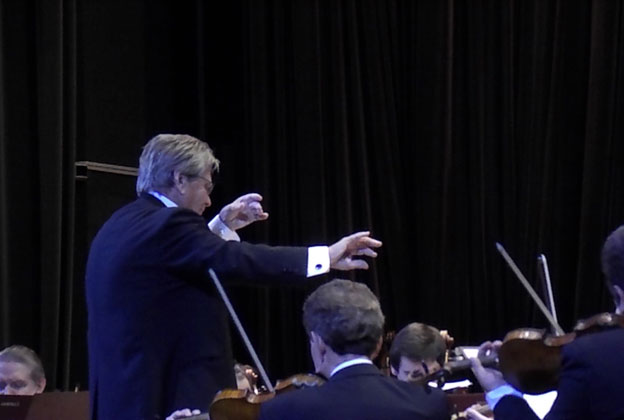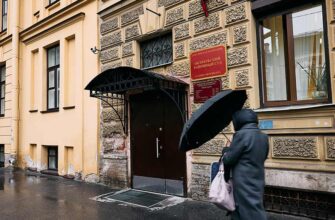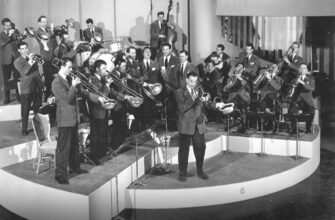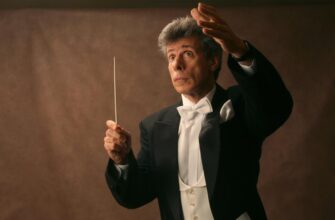6 Sep 2016 Grand Symphony orchestra after Tchaikovsky made a performance at MGIMO (Moscow Institute of International relations), playing for professors and students of the Institute the two serenades — “Serenade for string orchestra” by P. Tchaikovsky and “Sun valley Serenade” by Glenn Miller. As an encore they played snippets from “the Snowstorm” by G. Sviridov. Conducted the orchestra its Director V. Fedoseyev. On that occasion, we asked the famous conductor of the interview.
Vladimir Fedoseyev was born in 1932 in Leningrad. Was educated at the State music and pedagogical Institute after E. Gnesina and at the Moscow Conservatory (class of Leo Ginzburg). From 1974 he is Artistic Director and Chief conductor of the State academic Bolshoi symphonic orchestra named after P. I. Tchaikovsky. From 1997 to 2006, he headed the Vienna Symphony orchestra. Guest conductor of many international orchestras, including the Tokyo Philharmonic and Radio France.
E Vesti: Vladimir Ivanovich, You are involved now in a wonderful festival of “High art in small cities of Moscow region”.
Vladimir Fedoseyev: I feel that in modern times the culture is transferred to small cities. There we have a special welcome, there we see thirst for art. However, in my opinion, there is no small cities in Russia. There is one nation with a big heart. And the fact of holding such a festival is amazing. It is a great pleasure for us, despite the long distances and bad roads, to go there and to give these concerts. Because we see the reaction, see those eyes, especially children’s eyes. All this is impressive! This allows us to get a whole new charge. We often gave concerts in Klin town, and now we visited these cities, which had previously been somewhat neglected by orchestras and high culture generally.
E Vesti: I understand that You personally made, I thought of her, and in every city it is different. What was the target?
Vladimir Fedoseyev: There a principle implemented by the British managers: to bring the audience they play a popular thing (the famous promenade concerts), and in the center of the program they put some unfamiliar works. And we do that, too. Those things which are at the hearing — for example, music of Sviridov – we put in the beginning. At starting of it we see an immediate reaction of the audience, they already know the composer, they have loved him. And in the middle of the program we put some less known works. But the reaction is huge because it’s tears of joy, because the idea is inherently wonderful. It is, of course, very difficult to do it, because the whole day is lost in the road, but it doesn’t matter, we are there.
E Vesti: That is You take a great place for educational task?
Vladimir Fedoseyev: Of course. The province now wants culture! It is worth noting that there know the name of our orchestra and go to concerts no coincidence that we are very pleased.
E Vesti: Our great composers of XIX century, creating a Russian school of music, its traditions thought that their musical language must be understood by the Russian people. It is clear until now?
Vladimir Fedoseyev: Of course! Glinka said, “we’re not writing Music, the people do it, we only arrange it”. This is true, but not literally, of course. All our composers, all of their work are based on the folklore material. Change only the “rim”. Folk song inserted into the socket of the composer, is valuable like a diamond. And still our composers are very closely associated with folklore, with authenticity. Well, maybe, Rachmaninoff has some other origins, but he has own way. Three Russian songs he wrote, what is it? The Russian songs which are sung in the villages he introduced to the Symphony orchestra, the oratorio.
E Vesti: So all this is still necessary and clear?
Vladimir Fedoseyev: It is needed and clear. Because music don’t have to be played for professionals only. It is necessary for people who feel art by heart. This music is actually composed. We are proud of Peter Tchaikovsky, he is number one, not only for us, Russian. The Japanese say that Tchaikovsky is a Japanese composer. That is, all the feelings, the perception of feeling they are absolutely identical to ours. Today, the music largely replaces policy: we are coming to some country and see one love, no sanctions.
E Vesti: Apparently, therefore, in the upcoming tour of the orchestra in the UK and China in the program of each of the thirty concerts will be featured at least one work by Tchaikovsky?
Vladimir Fedoseyev: We always discuss this issue, we ask concert organizers, what would you like? They answer You know what — we need Tchaikovsky, Sviridov… Barely getting to play Sviridov — we have a sucsess. After all it is our, Russian composer, he was a disciple of Shostakovich. He is one of those composers whose music can be found among people on the streets, even they are not knowing what’s being played. This national recognition, which have Verdi (song of the Duke from “Rigoletto” – approx. ed.) and Mozart (Aria of Figaro from “Le nozze di Figaro” — approx. ed.).
ЭВ: Chinese believes that who knows music can rule the state. You play tonight at MGIMO, in the place where future politicians learn. Please, tell me, do You believe that the music of P. Tchaikovsky and G. Miller, presented at the highest level, can contribute to the development and success of our politicians?
Vladimir Fedoseyev: Of course, it complements other things — not only politics, but business as well… Give you one example. In April we played in Vienna through our sponsor LUKOIL. The hall was crowded, Vienna was delighted. We played Tchaikovsky, Prokofiev and Ravel. LUKOIL understands the value of our trips. And we are very grateful to them for that.
E Vesti: The Moscow Philharmonic is now sold out more than 100 thousand tickets, it is a record. They say that a lot of people come there, including young families. It’s wonderful that in our country people are drawn to the classics and investing in children, in their upbringing.
Vladimir Fedoseyev: This is our future. Art is eternal. N. Gogol, what he said? “What would have become of us if the music left us?”. Children, the next generation will be more talented, I think. There was some failure after the 1990s, but now everything is recovering.
ЭВ: Вы в сентябре даете еще концерты в Большом зале Московской консерватории и Концертном зале П. Чайковского?
Vladimir Fedoseyev: In the Great hall of Conservatory will be performed music by Shostakovich. This year is celebrated 110 years of Shostakovich, he is one of the greatest of our composers, and in fact he became a classic. And in the Tchaikovsky hall on September 21 will be “Ivan the terrible” by Prokofiev.
E Vesti: The last question. You have a lot of overseas tours. You know, as if You conduct in the global theaters, is our spirit of Russian art, of Russian music is popular now? Does the world today need it?
Vladimir Fedoseyev: It is needed. Russian art – it is all-consuming. In any country there is no such an art. Unfortunately, the Russian culture is in a sad financial state now, there is no attention to it. Our cultural budget is one of the most insignificant. Look, in all theaters of any country you find Russian singers. Of course, they go for money, it’s understandable. We can’t pay even that. But still Russia and Russian art is everywhere: whether ballet, whether vocal. Our traditions are great.
Unfortunately, television brings a lot of damage, vulgarity. It’s popular, it’s tempting, but actually it is a bad art. I’m not against variety art. But there is pop, and there is another pop, there is vulgarity. And there are countries where one or two channels constantly play the classics. Sadly, and happily.
E Vesti: The growing popularity of classical music says that people are tired of TV?
Vladimir Fedoseyev: People want to breathe clean music. That means classics — an undying music.





